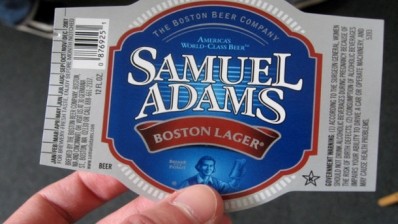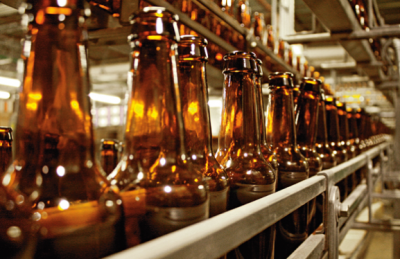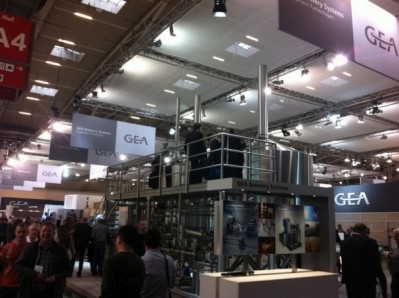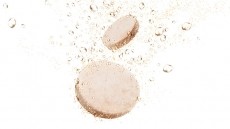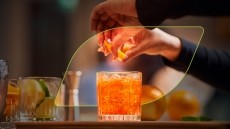Samuel Adams beer boss Jim Koch: ‘Germany's Reinheitsgebot becoming like artistic censorship’
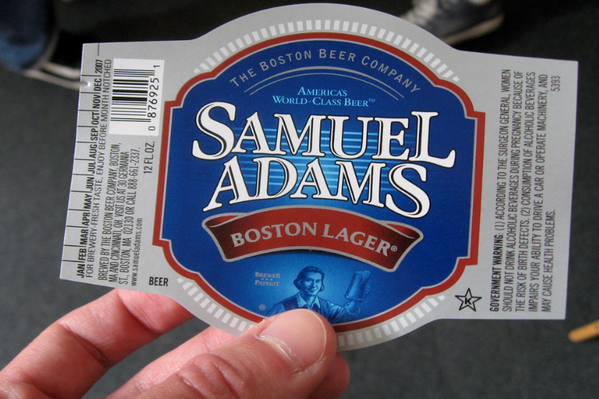
At a keynote speech in Nuremberg, Germany to mark the opening of Brau Beviale 2014, Koch spoke passionately about innovation in US craft beer – 8% of the US market by volume (set to double in the next 5-10 years) and 13% by value – and said brewers had many more choices than winemakers or distillers.
“In the US we can choose any ingredients we want, and I believe in some ways the Reinheitsgebot has been a great foundation for amazing beer tradition, but it needs to be opened up a little bit more, so brewers can use any ingredient they want,” he said.
A brewer should be like a chef, not constrained. In some ways the Reinheitsgebot has served its purpose as a public health measure and it’s almost becoming like artistic censorship. So I have to wonder if there isn’t opportunity there. IN the US we have the freedom to make everything from light beers to Utopia [Boston Beer’s 30% ABV brew that costs €150/bottle]…This is possible when brewers unleash their energy.”
Koch’s ancestors migrated to the States over 150 years ago, and he is the fifth eldest son to become a brewer, founding the Samuel Adams brand 30 years ago, although when he told his father he wanted to start a small brewery, Koch senior told him it was “the dumbest thing I’d ever done”.
'When I started 30 years ago it was almost a desert, with only 40 breweries in the US'
“When I started 30 years ago it was almost a desert, with only 40 breweries in the US. The beer industry was shrinking and consolidating into what had almost become just two enormous national brewers – SAB Miller/Molson Coors and ABI, who today make 90% of the beer in the US,” Koch said.
“They have a wonderful capability to mass produce and mass market enormous amounts of light, well-made refreshing beer at enormous efficiencies and low costs. At that time beer was differentiated not by the flavor and the taste but by advertising, small brewers were going out of business,” he added.
The Boston Beer Company is on track to brew 5m hectoliters in 2014, and Koch said he saw an opportunity hid father did not, in a market where drinkers were stuck with either well-made American beer that lacked flavor, or imported beer that was stale, often ’skunky’ and (even when made in Germany) was made with adjuncts.
Koch said he brought back techniques and brewing methods including use of Nobel hops, dry hopping, etc. – “thing that had even been forgotten in Germany because they were expensive and inefficient”.
“Well, I started making expensive, inefficient beer, which worked. I went further, put legible freshness dates on all of our beer. We pulled beer out of the market and destroyed it – if it was older than 4 months for bottled beer and 2 months for draft beer,” he said.
Today The Boston Beer Company spends $5m+ every year pulling stale beer from the market and destroying it, Koch said, adding in passing that he wasn’t impressed by typical German freshness standards of 6-12 months.
Koch said he started his company with $230,000 and one staff member, a woman called Rhonda, naming his beer after American Revolution rabble rouser Sam Adams: “My original plan was to brew for five years and get to 6,000 hectoliters and then stop growing. That plan failed, but luckily it failed in the right way,” he said.
“No distributor would carry my beer, so I went from bar to bar with my beer in a briefcase selling beer. But I was selling more than just beer, I was also selling a new way of thinking about beer in America, selling a revolution – beer with real flavor and taste not sold by advertising and marketing.
'We went from being invisible, to being infinitesimal, to being tiny. Today we're small!' (Jim Koch, founder, The Boston Beer Company)
30 years later Koch’s company now sells 5m hectoliters per year but still only constitutes 2% of the overall US beer market, as, in his own words: “We went from being invisible, to being infinitesimal, to being tiny. And today we’re small – we’re quite proud of that.”
After showing two television adverts, one for Samuel Adams (which focuses on the quality of the ingredients and the drink) and a more populist Bud Light slot, Koch compared theUSbeer market to a leaky 190m hectoliter bucket.
“The market is dominated by the big two mass domestic brewers, but this big 190m hectoliter liter bucket is leaking. It’s big, but it’s got a lot of little holes in it,” he said.
Some of it is going to wine and spirits, some of it to craft beer, imported beer, new beers from the big guys to flavored malt beverages with new flavors, to hard cider, to hard tea to specialty beers from the big brewers – it’s leaking in many different directions, and continues to leak.
“That gives us 3-4m hectoliters per year that is up for grabs,” Koch said. “Most of that volume is going to better beer at the higher end, with more flavor, more taste and better ingredients and a higher price point. In the US craft beer sells for 60-100% more than ordinary beer.”
On this note, Koch said one of craft beer’s foundations was “putting value into beer” in a world where most brewers spend their time taking cost out to increase profits; consequently, Boston Beer is able to sell 30% ABV brew Utopia at €150/bottle, he said, where this product has beaten €400/bottle ports and €1,200/bottle cognac in accredited blind tastings.
Of course, US brewers have the license to rip up the rule book and experiment, and have done so with new malts, new hops and new yeasts, even different flavored brewing water, in the early years of this century.
“US hop growers have developed a lot of new aroma and flavor hops that have excited beer drinkers, created new flavors – hops like Amarillo, Citra, Millennium, Mosaic, Simcoe – these have brought flavors like mango, lychee and pineapple into beer,” Koch said.
“German hop development has been more goal focused, like better yielding, more disease-resistant varieties Noble hops and amazing high alpha hops…but very focused against specific goals,” he added.
"US breeders embrace chaos by having no clear, definite fixed objectives, and having brewers help select hops for commercial development,” Koch said. “This happens by a fairly random, disorganized process.
"But by happy accidents we discover new things, and we’ll see dozens of new hop varieties coming out of the US in the next 10 years. Hops will begin to be customized, even for an individual brewer and their needs," he added.
